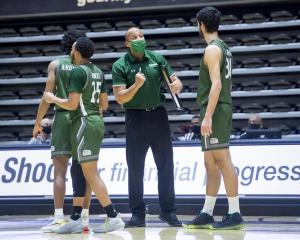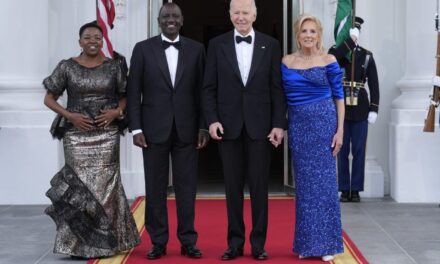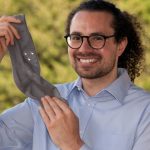

Loyola University-Maryland basketball coach Tavaras Hardy. (Stockton Photo/Loyola Athletics)
By Demetrius Dillard
Special to the AFRO
It’s official. Collegiate athletes are now permitted to profit from the use of their name, image and likeness.
On June 30, governance bodies in all three NCAA divisions adopted a uniform interim policy suspending restrictions on NCAA name, image and likeness (NIL) rules for all current and incoming student-athletes in all sports. The policy has been in effect since July 1.
According to the NCAA, the new policy has outlined the following guidance for college athletes, recruits, their families and member schools:
- Individuals can engage in NIL activities that are consistent with the law of the state where the school is located. Colleges and universities are responsible for determining whether those activities are consistent with state law.
- College athletes who attend a school in a state without an NIL law can engage in this type of activity without violating NCAA rules related to name, image and likeness.
- Individuals can use a professional services provider for NIL activities.
- Student-athletes should report NIL activities consistent with state law or school and conference requirements to their school.
In addition, the interim policy will remain in place until federal legislation is passed or new NCAA rules are implemented. Over the past month and a half, this has generated the most buzz in the sports world, besides the Tokyo Olympics, as the NIL policy is expected to change the future landscape of college athletics.
After decades of the NCAA prohibiting athletes from accepting any outside money to preserve ‘amateurism’ in college sports, the 460,000-plus athletes that make up the NCAA can now be compensated for a variety of NIL-related pursuits, from selling autographs and running sports camps to striking endorsements and securing major brand deals.
Athletes will also be allowed to hire agents to help them navigate the new NIL process and must report activities to their respective schools.
“This is an important day for college athletes since they all are now able to take advantage of name, image and likeness opportunities,” NCAA President Mark Emmert said in a press release.
“With the variety of state laws adopted across the country, we will continue to work with Congress to develop a solution that will provide clarity on a national level. The current environment, both legal and legislative, prevents us from providing a more permanent solution and the level of detail student-athletes deserve.”
In 2019, California Gov. Gavin Newsom signed a bill that would allow college athletes to make money off the use of their name, image and likeness, referred to as the ‘Fair Pay to Play’ Act. One could argue that law made way for the NCAA’s new NIL policy.
The Fair Pay to Play Act also allows athletes to sign with licensed agents and strike endorsement deals. The legislation, scheduled to go into effect in January 2023 in California, doesn’t require schools to pay athletes but makes it legal for college athletes to market their name, image and likeness for personal monetary gain.
Since California’s legislation, several states have already passed their own NIL laws. In Alabama, Florida, Georgia, Kentucky, Mississippi, New Mexico and Texas, it became law on July 1, with Arizona following suit in mid July.
Arkansas, Michigan, Nevada, South Carolina and Tennessee will enact laws in 2022, according to the Boston Globe, and Nebraska and Oklahoma will have laws no later than 2023. Maryland will join Colorado, Montana and California in 2023.
On May 18, Gov. Larry Hogan signed Senate Bill 439, also known as the Jordan McNair Safe and Fair Play Act, into law.
The bill, named after the University of Maryland football player who died of heat exhaustion during a workout in 2018, will require the state’s public universities to adopt new NIL and health-related policies. The health-related policies took effect on July 1 and the NIL features will be effective July 1, 2023.
Loyola University-Maryland basketball Tavaras Hardy agrees with the NCAA giving college athletes an opportunity to monetize the use of the name, image and likeness, but doesn’t want them to lose sight of the ‘student’ in student-athlete.
“I don’t want this to get into the way or interfere with our student-athletes still having the opportunity to pursue academic success and academic excellence,” said Hardy, a Joliet, Ill., native who is entering his fourth year as head of the program.
“While I embrace the opportunity for them to go out and make money, I want them to understand these full-ride scholarships are valuable, and I don’t want them to do anything to jeopardize those because you wouldn’t be making as much money for most student-athletes as you’re getting paid in scholarships.”
According to Hardy, Loyola student-athletes on full-ride receive roughly $70,000 a year in scholarships.
He feels having academic costs covered along with the opportunity to compete in collegiate sports is more valuable than the possibility of capitalizing off NIL rights, which, in theory, will be more lucrative for students from top-tier basketball and football schools, such as Duke, Kansas, Ohio State, Michigan State, Alabama, Clemson and so on.
“Just make sure you’re smart and understand that you still have to be a good basketball player, in our situation, you still have to go to class and be a good student,” he said.
“You still gotta do things the right way to maintain your scholarship because to me it’s much more valuable than the opportunity to make money off your name, image and likeness for most student-athletes.
“At the end of the day, I will still always say getting your education and having an incredible student-athlete experience is the most important thing, and if you can find a way to make some profits on the side, so be it. But we’re not going to put a whole lot of emphasis on that in our recruiting pitch.”
Help us Continue to tell OUR Story and join the AFRO family as a member – subscribers are now members! Join here!
The post NCAA decision ushers in a new era for collegiate sports appeared first on AFRO American Newspapers .











